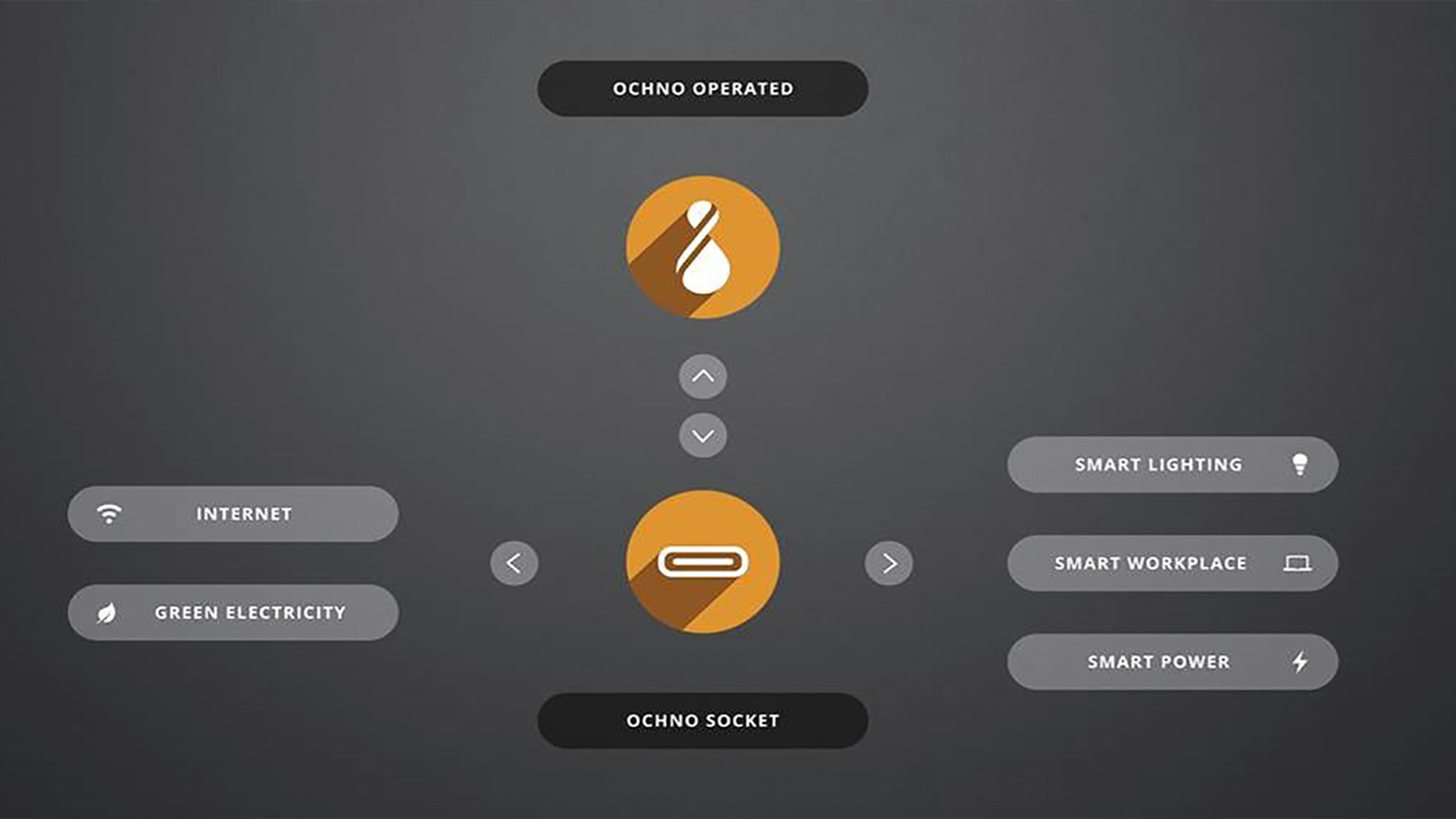USB-C for Energy-Smart Buildings
Ochno is developing a platform for simplified integration of USB C sockets in buildings, measurement of electricity distribution, control of connected devices and reduction of power consumption.

Background
The smart and energy efficient buildings of the future contain a very large amount of controllable electronics, LED lights and a lot of power consumption is also being used to charge different devices and batteries.
Today's infrastructure based on single-directional alternating current between 120V - 230V and different parallel wired and wireless standards for communication and control, is not optimal from a number of perspectives. USB Type-C (or USB-C) is a new standard from the consumer electronics industry for stearable power distribution and high-speed communication, which, through volume, future penetration and powerful features, could provide a better option more suited to future needs.
Project description
Ochno is developing a platform and cloud service that makes it easy to integrate USB-C sockets into house properties, measure all power distribution, control connected devices, and even connect them directly to local solar panels via DC, reduce power consumption by 5% –15% by reducing conversion losses.
Implementation
In the KTH Live-In lab, each student room receives 6 integrated USB-C jacks that can deliver up to 100W / socket and are used for power supply without the need for a charger or AC adapter and internet connection for computers, mobiles and tablets. There will also be a number of stand-alone smart LEDs that can be connected to these sockets.
Using a mobile application, users can choose to control device charging to only charge when there is an abundance of power generation from the solar panels, helping to balance local power generation and power consumption.
Read more about the project on Ochno´s website
